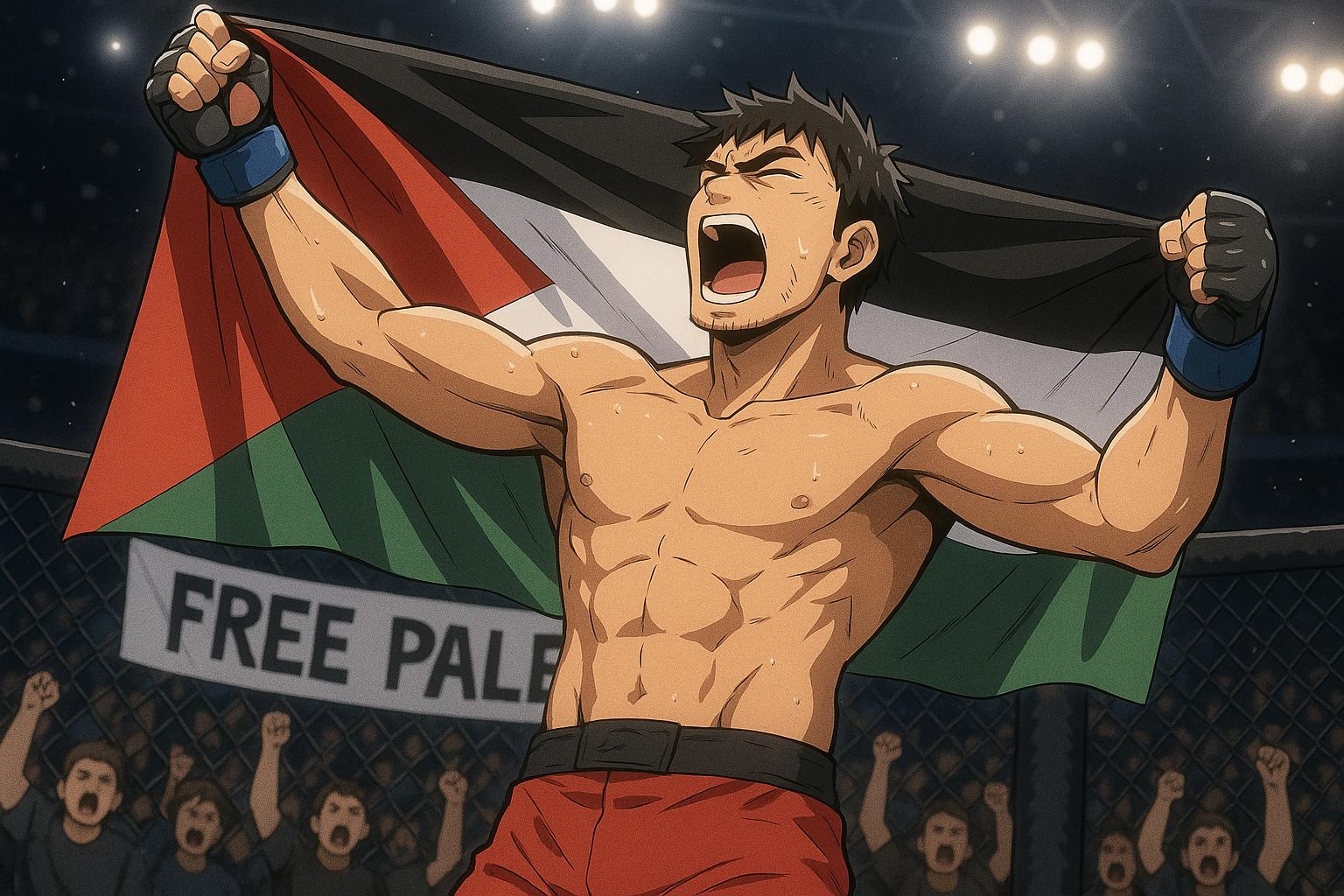Paddy McCorry, a mixed martial artist from West Belfast, sparked controversy during a recent bout in Rome, where he was filmed shouting "Free Palestine" in the face of his Israeli opponent, Shuki Farage. This high-stakes match, part of the Cage Warriors 189 event, concluded with McCorry dominating Farage and earning a unanimous victory. After the fight, he celebrated by brandishing a Palestinian flag and reiterating his support for Palestinian rights.
The incident has since gone viral, bringing McCorry both praise and criticism. While many applauded him for leveraging his platform to advocate for a cause he clearly feels passionately about, others condemned his actions as inappropriate for a sports setting. This polarisation reflects a broader debate on the intersection of politics and sport, a topic that has entered the public discourse particularly sharply amid heightened tensions in the Middle East and ongoing humanitarian crises, such as the severe conditions currently facing Gaza.
Reports indicate that the situation in Gaza has escalated sharply, with the United Nations warning that all 2.3 million residents face the threat of "catastrophic hunger." Recent events, including a tragic incident where at least 31 individuals were killed near an aid distribution centre, underscore the urgency of the humanitarian situation. Such statistics add depth to the political backdrop against which McCorry's actions were set, illustrating the stakes involved in using sports as a platform for political expression.
Farage, who prior to the match had expressed confidence in his ability to "take down" McCorry, notably served in the Israel Defense Forces. Images circulating online show him in IDF uniform, reportedly taken from his social media, which has since been deactivated following public backlash. This context complicates the narrative of the fight; it was not merely a contest of athletic prowess but also a clash imbued with symbolic weight, raising questions about the role of individual athletes in the broader geopolitical landscape.
Cage Warriors, the promotion hosting the event, highlighted McCorry's performance as dominant, calling for him to secure a spot on Dana White’s Contender Series. The promotion has repeatedly supportive of its athletes taking stances on serious issues, as evidenced by the divisive discussions surrounding McCorry's actions. In a sport where personal narratives and advocacy increasingly shape fan engagement, McCorry’s defiance unearths both the merits and pitfalls of bringing political expression into the ring.
Attending audiences were also vocal during the match, chanting "Free, free Palestine," amplifying the message and demonstrating the support among fans for McCorry's stance. Yet, this incident poses a challenging question for sports as a whole: how to navigate the complexities of activism in arenas that traditionally prioritise entertainment. As athletes continue to transcend the role of mere competitors, the importance of discernment in their expressions of solidarity becomes ever more critical.
Ultimately, McCorry's actions serve as a vivid illustration of how sport can be a powerful vehicle for political expression, igniting discussions that extend far beyond the confines of the cage. The reverberations of this match will likely linger, both within the MMA community and the broader sphere of societal discourse regarding advocacy, identity, and the responsibilities of public figures in times of crisis.
##Reference Map:
- Paragraph 1 – [1]
- Paragraph 2 – [1], [6]
- Paragraph 3 – [1], [2], [5]
- Paragraph 4 – [1], [3], [4]
- Paragraph 5 – [1], [7]
- Paragraph 6 – [1], [6]
Source: Noah Wire Services
